Get posts by email
Waldorf Inspired Homeschooling ~ An Interview
September 26, 2011
You've met my mom, you've met my dad, and of course you've met my precious kids and hunky husband.
Today I'd like to introduce you to my sister-in-law, Dawna.
When my brother Brad choose Dawna for a wife he hit it out of the park. Dawna is intelligent, beautiful, and loves all things natural and earthy. She is a singer-songwriter with a knock 'em dead voice. She is generous, thoughtful, and not attached to stuff and possessions. She inspires me.
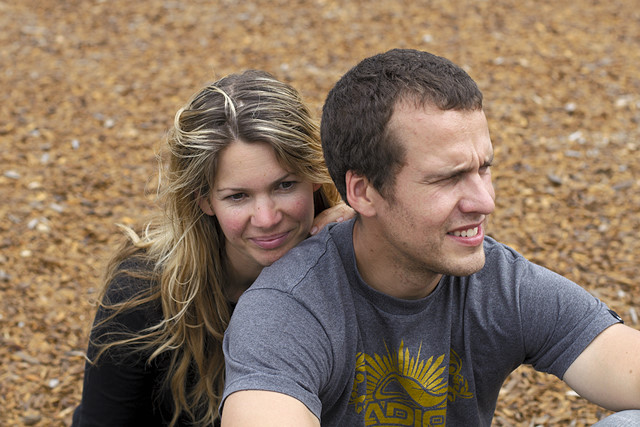
But you know what impresses me most about Dawna? The way she uses her interests, talents, and gifts to serve her family. I admire the way she invests in her family - the support she is to my brother and the amazing mother she is to my niece and nephews.
If Dawna ever offers a course or coaching on mothering (trust me, those who know her tell her she should) I highly recommend it to you all. She's the real deal and I know other mothers could learn from her heart, experience and wisdom. Truly.
She's all that and more. Dawna also homeschools her three kids (neither my brother or I were homeschooled, in case you're curious). Earlier this year I interviewed her about their Waldorf inspired homeschool. Here is that interview.
1. Welcome Dawna. Tell us about your family. Feel free to mention what a great Dad my little brother is (smile).
We are a family of five. We honor living simply and living life to its fullest. What this means to us will obviously be different than the next family. To us, it involves talking about what that means on a regular basis and reevaluating, recalculating, and rediscovering according to different rhythms of our lives.
Brad (Renee's amazing brother) is the Husband/Father/Best Friend of my family. He is a very 'present' man in the lives of his family and we are lucky/blessed/insanely enriched that he is part of us.
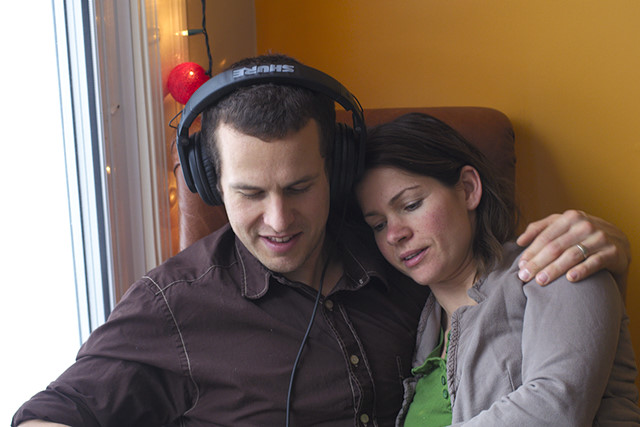
Together, we have three children, ages seven, six, and five. They are 15 months apart each and we wouldn't have it any other way. We LOVE how close they are and love it even more, now that we are embarking on our homeschooling journey. Our two oldest are boys and our youngest is our daughter. They are all very different. Although, despite the gender-difference I'm pretty sure the DNA code between my oldest and youngest is quite similar.
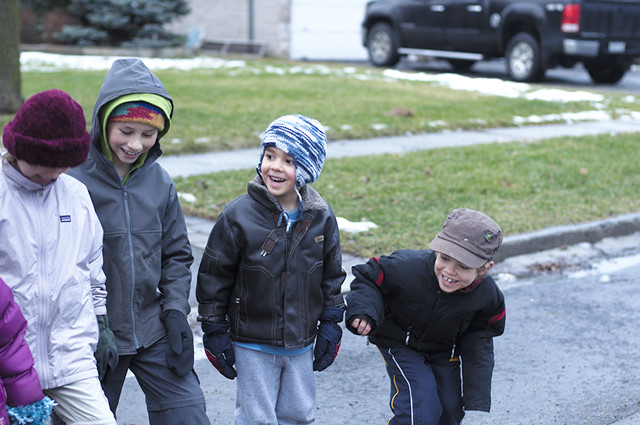
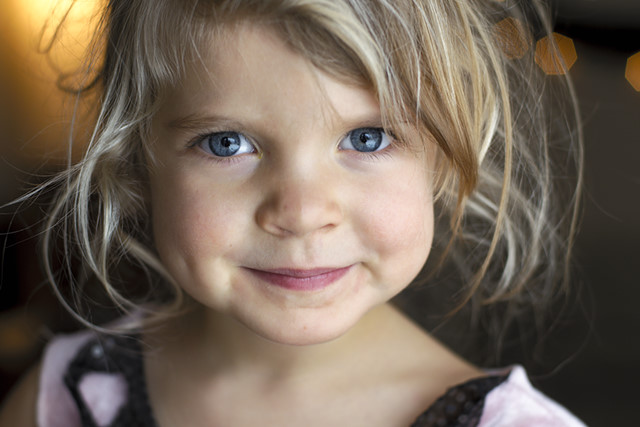
2. Dawna I’m so curious about Waldorf schooling. I’m hoping you can enlighten me a bit. I’ve always been interested in it but since settling into our own particular philosophy and practice of education I haven’t done much research about the alternatives. What makes a Waldorf education uniquely Waldorf?
Interestingly enough Renee, you encompass many of the Waldorf philosophies without maybe even realizing how much! It seems your natural instincts for your children's learning is very Waldorf bent.
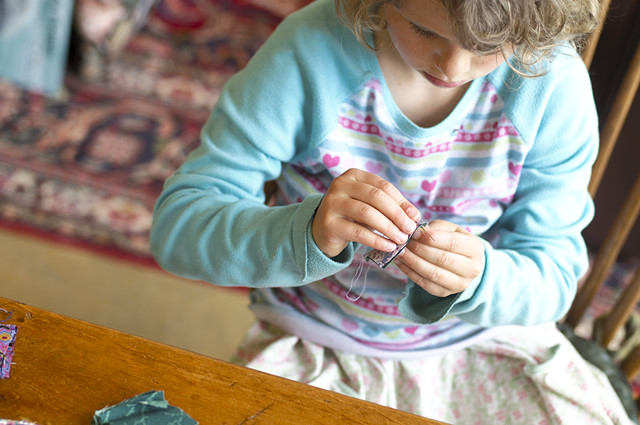
We first heard about Waldorf through a friend of mine when our oldest was three. This friend inspired me in every sense of the word. She is the owner of a company called, Nummies.
She started her company in order to put her children in a Waldorf school. We got along perfectly the moment we met. She also had two boys and a girl, in the exact same order; almost the exact same age as mine. She told me about the Waldorf school her kids went to and it sounded perfect for us.
Now, there's something you should know about some people who go to Waldorf: they are VERY passionate about their experience. You may have to forgive those of us who "preach" this way of education. It's not meant to be pushy. It is only meant to be freeing to those who have become disillusioned by the public education system in our country. Regardless, we don't always present it as such (smile).
{editor's aside: I LOVE passionate people. Go girl, share your passion.}
You see, what I LOVE about Waldorf, is the freedom to create an atmosphere of learning through life and living life while we learn. It is about learning through our natural environment and teaching lessons through stories. It considers each individual child and their differences.
It embodies the philosophy that children learn best later than our culture insists upon. The slow and steady approach and the foundation it sets for learning, has the WHOLE child in mind.
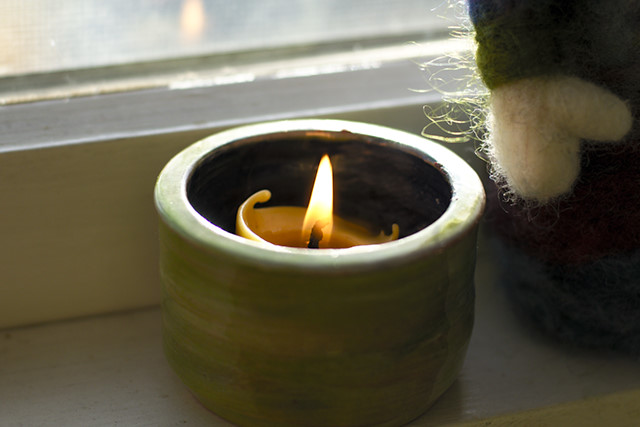
For instance, studies show that our memory is most often triggered by the sense of smell. We remember situations, events, etc, when there is a sense of smell associated with it. Once we simulate that particular sense, our memories are triggered.
So it is in a Waldorf setting. An example of this is the younger years students bake bread dough on a regular basis. When learning the alphabet the children might be found shaping the letter "A" out of dough, baking it in the oven, and eating it later on in the classroom with their lunch. This holistic approach to learning ensures a foundational learning experience, which deepens their understanding and provides a love for learning as is evident when they enter the later, more difficult years of schooling.
3. What aspects of the Waldorf philosophy really appeal to you? What practices do you intend to incorporate in your homeschool?
I love learning through life and living life to have fun, experiencing community in meaningful ways, living simply, and taking care of my surroundings while doing so. I can't think of a better way to teach my kids than through a Waldorf curriculum.
There are many examples to give. But, I will give the best one that has been circulated around the internet by one of my favorite speakers, Sir Ken Robinson's TED Talk on Creativity. Renee, I believe you had this on your wall a couple of years ago as well.
{editor's note: She's right, I posted this video to FIMBY three years ago. Robinson's ideas have been very influential in our homeschool.}
In this video Robinson brilliantly explains the potential for the general public school system to stifle some of our most brilliant children. He gives the example of one presently successful woman who today would have been told she needed medication in our present day over-medicated children. Instead, the mother of this little girl brought her to a dance school and realized that she was not "broken" and needed to sit still longer. Rather, she merely needed more movement in order to think more clearly.
This is one aspect of Waldorf - the nourishing of each and every child holistically. It is not in the business of teaching math in seat work practice, merely presenting symbols and numbers in repetition until it is drilled down each student's throat in the same way, over and over and over again.
Waldorf encompasses each and every sense within a child's natural surrounding.
The other major reason I was bent toward Waldorf was my two sons. After my second son was born, we immediately knew that there were some skin issues that grew worse with certain baby products. He was born with major eczema all over his face and body. Thankfully, this sent me into a frizzy of removing all perfumes and toxins from our home.

For anyone who has begun this endeavor, you know that:
- it is no easy task
- the deeper you go, well, the deeper you must go
Without getting too much more into it, we began our search for all things as natural as we could afford: toys, bedding, kitchenwares, housewares, clothing, shower products, and the list just went on. This, naturally, brought us to removing all plastic toys from our children's lives. We started searching for wooden and organic toys only and what the kids can't find inside our home, well, they will always find outside.
With an emphasis on nature walks daily (something I still struggle with in our Canadian-cold winters), learning, using natural toys and our own backyards, it was easy to see why Waldorf became our choice for teaching our kids the ABC's and 123's.
4. Is there something about your family life, personal values, or your children’s unique learning styles and temperaments that made you want to try a Waldorf-inspired education?
When my oldest son was five, he was diagnosed with Autism. He was on the mild part of the spectrum, but we learned how important a Waldorf education would be to him in the many months following.
Our son had no imagination. His inability to engage in or create stories from his own imagination was obvious. One of the most important philosophies for us in the Waldorf curriculum was its emphasis on letting children, aged zero to seven just. be. kids!
There is the belief that children will learn when they are ready. The Waldorf approach maintains that children need to stay in their "imaginative" state so they can see the world as magical, safe, brilliant, and keep these first years innocent and admittedly, coveted by us adults.
Why would we want to rush them out of these short moments in time? For our son, whose obsession with facts leaves behind the beautiful journey within each moment, choosing Waldorf was an exciting opportunity! The idea of a school that honors these first years in such a way was literally breath-taking for me.
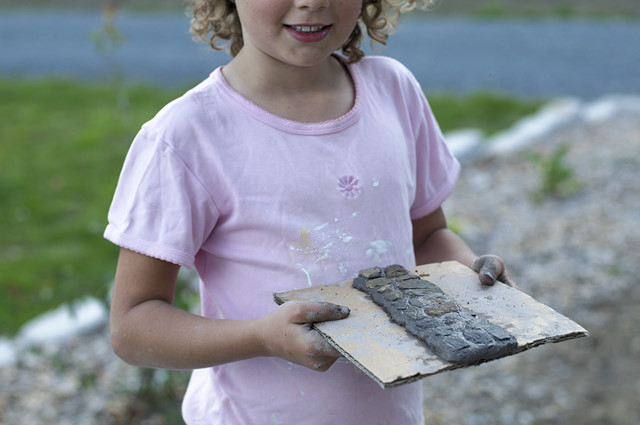
The holistic approach to learning through Waldorf has opened my eyes to teaching my children's 'whole' person.
For instance our oldest son is VERY interested in facts and is indeed gifted in this area. He began reading at the age of four, excelled in all areas of math, was two grades ahead while in kindergarten, and retained memory recall for 'facts' and 'locations' like no other we knew his age.
While some may have seen him as a very intelligent boy - and he was - this was only part of a boy who had many disabilities. While some choose to nurture these early gifts even further, we believe that to focus even MORE attention on what, naturally, was easy for him, would be a disservice to his 'whole' self.
What is the point to academic intelligence when he could not play with his own friends? Or have meaningful conversation with people, cope well in transition, or be too fearful to enjoy those activities and dreams he was seemingly so in love with (a near meltdown when close to firetrucks he was obsessed with was one small example). He could not play 'pretend' games with his siblings, who for hours, can occupy each other while he seemed 'fine' to sit on his own unless they played 'his' games.
This might have been ok for awhile, but my hopes and dreams for my children are to fully engage and challenge them in order to allow their WHOLE self to be brought into adulthood.
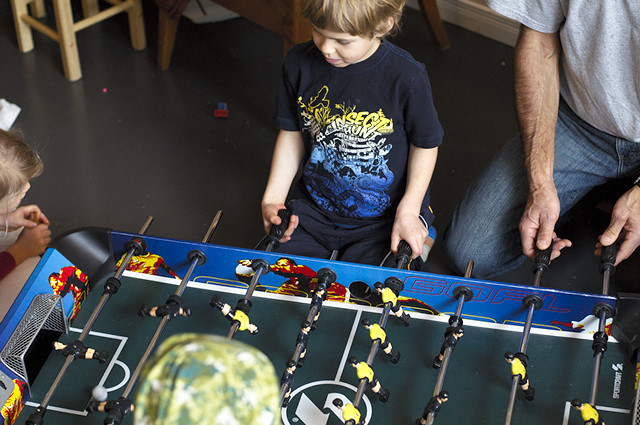
For our son, this means that he needs more encouragement and guidance in social ability, imagination, and creativity. In our own personal, Waldorf-inspired teaching we de-emphasize learning in those areas in which he excels in during his early years, and over-emphasize fairy tales, dressing up, encouraging pretend moments, narration through plays, and use of repetitive songs, verses, or games during our morning circle time.
I want to add, in the later years, of course children are encouraged to pursue their focus-interests. Yet, I can't help but think that Steiner (the father of anthroposophy, which Waldorf was founded on), knew exactly what he was talking about with all of my younger children.
5. What resources have you found, on-line or otherwise to help you in this journey?
We've now chosen a curriculum through The BEARTHInstitute. I love this curriculum. To be honest, I love the cost. But the reasons for those cheaper costs have me even more in love with this curriculum and how it resonates with our love for our abused Earth.
They don't use paper and provide excellent ways with how we can wean ourselves from our dependency on having to "feel the paper in our hands" in order to feel like we're actually "reading" a book. I realize, though, that this curriculum takes some getting used to... even for me. But, the founder does a great job of providing a video on how to wean ourselves from our old ways. If you're a hold-a-book-in-your-hands die hard, don't worry. There's always the opportunity to print off the book.
Through the internet, the The BEARTHInstitute offers videos, examples of others' artwork, schedule examples, and enrichment courses for just a few extra dollars. As well as many more additional resources to help one's journey through the curriculum.
The owner, Kristie Burns, is also the author of the book, The Temperaments and the Adult-Child Relationship. This book, learning through The BEARTHInstitute curriculum and through Waldorf in general with its multi-faceted approach, has taught me (the teacher) far more richly than all my school years (elementary through to University degree) combined.
A note of warning however - if you are new to Waldorf-inspired homeschooling; I would not recommend this curriculum in your first year of homeschooling. With the author offering MANY great options throughout the curriculum with very well thought-out ideas and examples, I found it quite overwhelming. I felt as though there were TOO many choices in too many different areas for a newbie in our first grade of "main lesson blocks" (a term used to describe the format of how to teach each lesson used in Waldorf). It wasn't until I got my hands on the Christopherus curriculum for grade 2 that BEARTHInstitute sang to me through the pages of the Internet.
The Christopherus curriculum has allowed me the structure I needed to be free.
This may sound like an oxymoron. Yet, it wasn't until I was able to get a grasp of the 'structure' behind how each main lesson block flows from day to day, week to week, and season to season, that I felt the freedom to guide my children using BEARTHInstitute and the many free resources across the internet, books, and beyond.
~~~
Dawna, I am so thankful for you as a sister-in-law. Thank you for taking the time to answer these questions from a curious sister-in-law.
Any questions for Dawna? Feel free to ask.
Do you have a personal experience with Waldorf education, homeschool or otherwise?
Filed Under
Resource Library
-

Beetnik Mama on Sept. 26, 2011, 6:47 p.m.
Very informative interview! Thanks for sharing!
I'd love to hear more about Dawna's perspective regarding the early years in Waldorf. With a 4-year old and 2-year old, should I be doing circle time? Should I be formatting our days so that they mimic those of a Waldorf kindergarten? Or do I wait another year or two for that?
I'd say that's what I'm most confused about -- how to get started! I'd love to build in some more routines to our days, but I don't know how!
Thank you!
-

Dawna on Sept. 26, 2011, 11:41 p.m.
Hi Beetnik Mama,
I do not believe you need to do circle time for rhythm to occur. But it can be fun and is my children's most fun part of homeschooling. At your children's age, circle time is just a name for "coming together" to learn songs and verses and hear stories. Many children's programs in libraries, schools, and elsewhere also see the importance of this in bringing beautiful imagery, moral lessons, help with speech, etc. to a child's early years
Regarding 'rhythms", I think all children thrive in a rhythm throughout the day. Within Waldorf, moments of breathing in (a more focused and quieter moment such as stories, verses, painting, modeling clay, etc) followed by "breathing out" throughout the day (a nature walk or some other more physical activity) is good for not just children, but for us parents as well.
When children are under the age of seven, they learn through imitation. One quote I held on to while my children were young went something like this: "You are not your child(ren)'s playmate. You are their guide and mentor". One quote along the same lines from Donna Simmons, author of the Christopherus Curriculum we're using this year is, "Think 'child inclusive' not 'child centered.' Your task is to include your child in your healthy life around your home - not to be a playmate and 'edu-tainer'."
Donna Simmons has an amazing blog and you can get loads of tips from her here: "http://christopherushomeschool.typepad.com/blog/kindergarten_and_prek/page/2/
Hope this answers some of your thoughts. :)
-

renee on Sept. 26, 2011, 11:55 p.m.
I love that - child inclusive, not child centered.
-
-
-
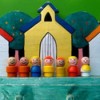
se7en on Sept. 26, 2011, 9:15 p.m.
This is just so brilliant, so much to read and you have the cutest nieces and nephews at the same time!!! Fabulous, fabulous post!!!
-

Beetnik Mama on Sept. 27, 2011, 12:50 a.m.
Thanks for the feedback, Dawna. It's much appreciated!
-

Naomi on Sept. 27, 2011, 2:29 a.m.
I am a big supporter of delayed schooling, but I am also learning that it is ok if kids learn "school" things at a younger age, if it is their interest. For example, my almost five year old son has been memorizing all sorts of words by recognition because he can't read. But he wants to know what everything says, so I started teaching him more than just the sounds of the alphabet. I figured that if it wasn't time and he balked, we'd stop until he was ready, but now he is sounding out three letter words and you can see the great satisfaction he is getting from it. Child-led is really where it's at in those early years.
-

Dawna on Sept. 27, 2011, 1:07 p.m.
Sounds like you're reading your child brilliantly, Naomi. :)
As I am a Waldorf-"INSPIRED" homeschooler, I would agree that when a child has an interest in some 'early' reading, it may not be harmful to them. I do, however, have a great interest in ensuring children are not frustrated at this early age. I have seen children who were QUITE eager to learn how to read and yet, became quite frustrated when it wasn't 'just right'. I would strongly caution to 'wait and distract' for those such children.
As much as we would like to encourage our children to 'not give up easily' when tasks are difficult, reading and writing are 'tasks', which, if taught at early ages, turn into great frustrations by the time they reach the older elementary years and we risk losing their enthusiasm for learning.
It really depends on the temperament of the child. Naomi, it sounds like you know your child well enough that the satisfaction he is getting at this moment is right on par with what Waldorf-inspired home-schoolers would appreciate about "HOME"-schooling. :D
-

Naomi on Sept. 27, 2011, 7:05 p.m.
Thank you, Dawna. I anticipated him not wanting to read yet, but I hadn't really thought about the possibility of satisfaction changing to frustration at a later time. My last priority is to just get to the end of the lesson, so if he indicates he would rather be using his energy elsewhere he has my blessing. He is still quite young, so we'll see where this takes us!
-
-
-

Karen on Sept. 27, 2011, 12:35 p.m.
What a great post. I have the most gifted daughter(s) a Mother could ask to be the guardians/teachers of her precious grand-children. Love to you both.
-

Kyce on Sept. 29, 2011, 2:06 a.m.
What a treat to have Waldorf make a guest appearance at FIMBY! What Dawna says about the Deeper you go, the deeper you go, really applies to me and my journey with Waldorf. I discovered it when my oldest was two and the road since then has been filled with incredible learning and discovery. I just want to add that so much of its foundations are relevant to all mothers of young children--it's a way of being with our children, embodying warmth and goodness, nurturing them through their senses, protecting their innocence, and doing inner work in order to "be worthy of imitation." Just wanted to add that http://theparenting passageway.com is an amazing resource for parents interested in gentle parenting and Waldorf homeschooling (or simply creating a "Waldorf" home). What a cool family you are!
-

Dawna on Sept. 29, 2011, 11:22 p.m.
Thank you for your kind words and your amazing additions Kyce.
I agree wholeheartedly that many of the Waldorf foundations apply to all children in the early years. It has helped me nurture the childhood moments that I, myself, almost missed in this, 'get them learning, learning, learning so they can be smart, smart, smart' culture we live in. My own children's present LOVE for learning has deepened my appreciation for all that Waldorf offers my children in their early years. Grateful for hearing a bit of your story. ;D
-
-

shelli on Oct. 6, 2011, 2:12 a.m.
This was so informative. Thank you. It's a goal of mine to research the various teaching methods, but realistically I'm not sure I'll ever accomplish that! This was really helpful.
-

Nicola @ Which Nicola? on Oct. 7, 2011, 11:27 p.m.
I got a lot out of this interview. Thank you!
You can subscribe to comments on this article using this form.
If you have already commented on this article, you do not need to do this, as you were automatically subscribed.






Heather on Sept. 26, 2011, 1:20 p.m.
I love this!! We lean a bit on the Waldorf side in our (un)schooling. The one thing that we really loved were all the festivals celebrated. We look forward to our St. Nicholas Day, Epiphany and all the other's! It's so much fun and my kids really get into it.
Dawna on Sept. 26, 2011, 11:09 p.m.
Thank you Heather. Yes, we are looking forward to Michaelmas coming up on September 29th. It's actually my favorite festival as it helps me transition and be brave for the colder months ahead. ;)